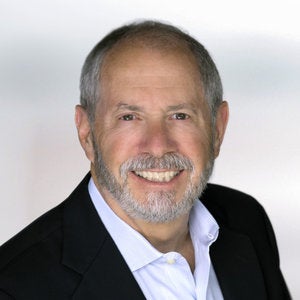Former Congressman Larry Larocco

It is important to celebrate this anniversary as a community of citizens who cherish our heritage and revere our democratic institutions. We must shine a light on the history of this legislation together with the courageous leadership it took to advance the proposal through Congress into law. This rich history is democracy in its best and most noble form.
On July 23, 1980, President Carter signed into law legislation championed by Senator Frank Church to protect statutorily the River of No Return Wilderness. It was a great day for Idaho, the United States, and the world.
This magnificent 2.3 million-acre area is now commonly referred to as “The Frank.” That name is a fitting tribute to a true conservation champion, Senator Frank Church.
Frank Church was a giant in the conservation arena: The Wilderness Act, Wild and Scenic Rivers Act, Land and Water Conservation Fund, Hells Canyon Preservation, Sawtooth National Recreation Area, Gospel-Hump Wilderness, St. Joe River protection and, of course, the River of No Return Wilderness.
The Frank encompasses approximately 5% of Idaho’s landmass and is the largest wilderness in the lower 48 states. Approximately 190 species of wildlife have been identified in The Frank. The Frank includes 125 miles of the Salmon River in the National Wild and Scenic Rivers system, protecting the Middle Fork and Salmon River watersheds. It serves as an untouched laboratory for scientists. It welcomes hunters, hikers, and horses. In-holdings are protected, jet boats are allowed to plow the mighty Salmon River, and private planes fly into back-country airstrips. Fair compromises were worked out–but the boundaries of the Idaho and Salmon River Breaks Primitive Areas were kept intact. This ecosystem was not marginalized.
This legislation was championed by Senator Church at a time of some personal political peril. However, he never considered the option to delay. As the senior U.S. Senator from Idaho, he steered the legislation through Congress. He demonstrated great leadership by putting the future of the nation ahead of his political fortunes. On November 20, 1979, the U.S. Senate voted 69 to 18 to end 15 years of controversy over the status of the primitive areas of Idaho. The U.S. House soon followed and the legislation was put on President Carter’s desk for signature.
A mission of the Frank Church Institute is to highlight issues on how democracy survives and thrives. It is worth noting that this legislation was truly bi-partisan, and Congress acted in a way that is truly in line with the ideals of our founding fathers.
Just before Frank Church died in 1984, his Idaho colleague, Senator James McClure, introduced legislation to re-name the Wilderness the Frank Church River of No Return Wilderness. This gesture was magnanimous, timely, and appropriate. Those of us who loved Frank Church also love “The Frank.”
Secretary of the Interior Cecil D. Andrus had been a key player in pushing this legislation within the Carter Administration, and he joined Senator Church at the White House as the legislation was signed into law.
At the signing ceremony, Senator Church said, “This is a proud day for Idaho and Idahoans. The River of No Return Wilderness is finally a reality. The magnificent Salmon River Mountains now has statutory protection.I have never known a single person who has not changed after a stay in the wilderness, not stronger after week on a trail in the Salmon River country, or more humble after having weathered a winter storm there. The craft with which this part of God’s world was made runs eventually into the minds and characters of those who explore these mountains and woods. Because America was built up from the wilderness, the wilderness itself has shaped our character as a people. We must never forget this fact. We are strong and proud and inventive because of our exposure to the exhilarations and dangers of living in a wild land. The River of No Return Wilderness will preserve for all time a portion of the western frontier. It will be a vast refuge for fish and game; it will provide protection for our watershed; and most importantly, it will be a haven for all those who, from time to time, feel the need to simply get away from it all. This day belongs to all Idahoans. The conservationists and sportsmen are well represented at this ceremony, as are Idaho’s mining and lumber industries. The fact that so many have come two thousand miles from Idaho to watch the President sign this bill demonstrates that it commands broad support in our state. It also proves that it is possible to work together to build a sound future for the generations that will follow ours.”
Larry Larocco is a former member of Congress (ID-1), and a member of the Board of Directors at The Frank Church Institute